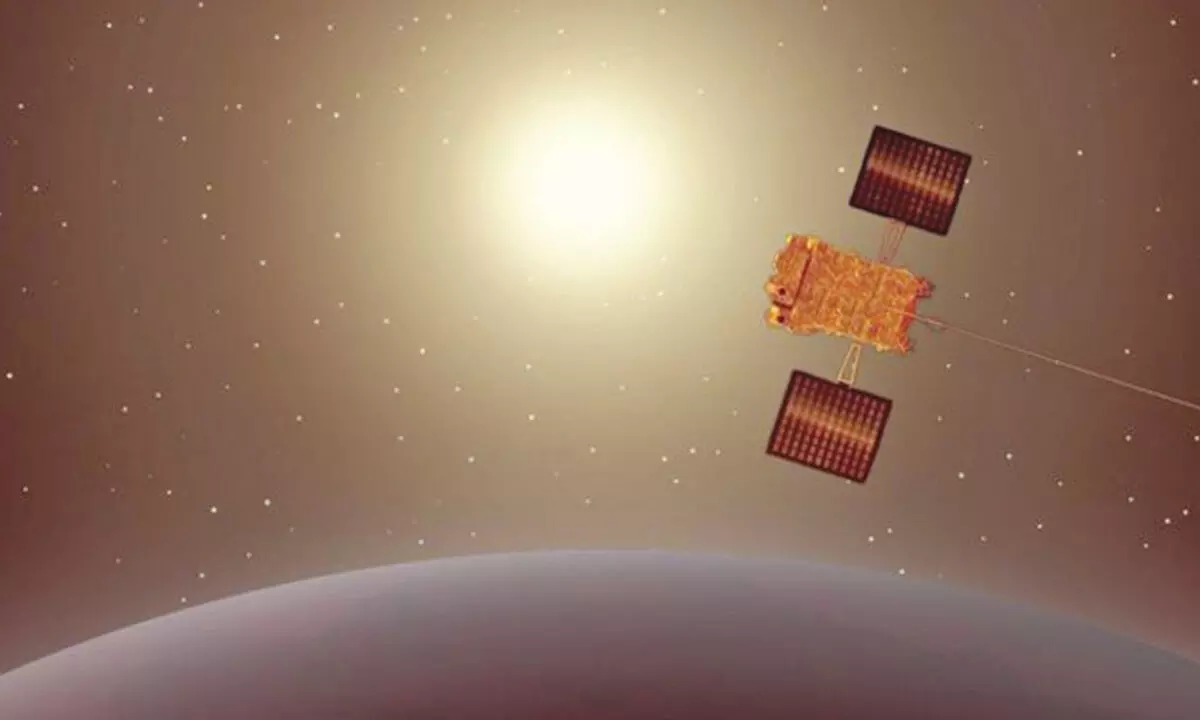ISRO puts solar eye in final spot

In yet another success for its space programme, India's first solar mission craft Aditya L1 on Saturday reached its destination, the L1 point, about 1.5 million kilometres from Earth from where it will orbit the Sun and study our star's wonders, uninterrupted by eclipses and occultations.
Bengaluru: In yet another success for its space programme, India's first solar mission craft Aditya L1 on Saturday reached its destination, the L1 point, about 1.5 million kilometres from Earth from where it will orbit the Sun and study our star's wonders, uninterrupted by eclipses and occultations. The Lagrange point 1 (L1) of the Sun-Earth system is about one per cent of the total distance between the Earth and the Sun. A satellite in a halo orbit around the L1 point has the major advantage of continuously viewing the Sun without any occultations/ eclipses, ISRO officials said, adding, this will provide a greater advantage in observing solar activities and their effect on space weather in real time. According to ISRO, the Halo-Orbit Insertion (HOI) of Aditya-L1 was accomplished at 4 pm approximately on Saturday.
ISRO chairman S Somanath said Saturday's event was about only placing the Aditya-L1 in the precise Halo orbit. "It was moving towards the Halo Orbit but we had to do a little bit of corrections to put it at the right place. So something like a 31 metres per second velocity had to be given cumulatively to the satellite to keep it at the right orientation,” he told reporters.
Another bright spot
The Halo orbit moves around the L1 point with a size of 6 lakh km in one dimension, over 2 lakh km in another dimension and 1 lakh km in one more dimension, forming an egg-shaped orbit. Aditya L1 has potential to escape this point (L1). ISRO makes manoeuvers to keep it in place.
The orbit of Aditya-L1 is a periodic one which is located roughly 1.5 million km from earth on the continuously moving Sun – Earth line with an orbital period of about 177.86 earth days








